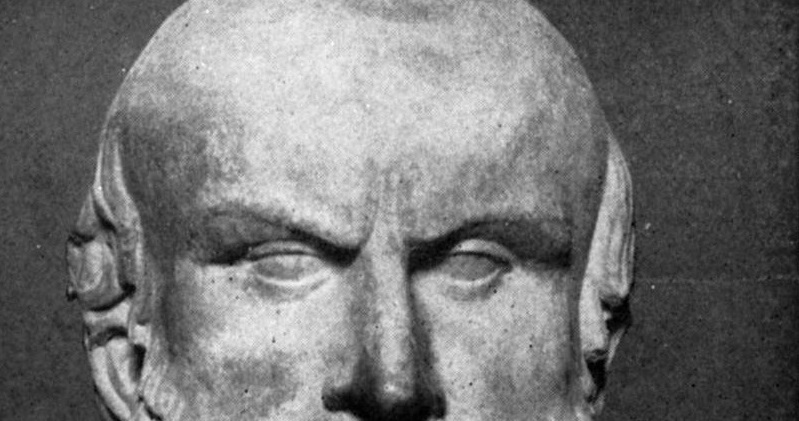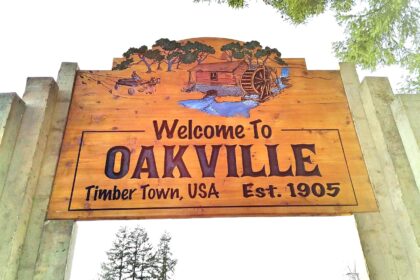Aeschylus was an ancient Greek tragedian. He’s often described as the father of tragedy. Academics’ knowledge of the genre begins with his work, and understanding of earlier tragedies is largely based on inferences from his surviving plays. Take a look below for 30 more interesting and awesome facts about Aeschylus.
1. According to Aristotle, Aeschylus expanded the number of characters in the theater and allowed conflict among them. Characters previously had interacted only with the chorus.
2. Only seven of his estimated seventy to ninety plays have survived, and there is a long standing debate regarding his authorship of one of these plays, Prometheus Bound, which some believe his son Euphorion actually wrote.
3. Fragments of some other plays have survived in quotations and more continue to be discovered on Egyptian papyrus, often giving surprising insights into his work.
4. He was probably the first dramatist to present plays as a trilogy.
5. His Oresteia is the only ancient example of the form to have survived.
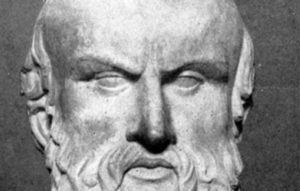
6. At least one of his plays was influenced by the Persians’ second invasion of Greece.
7. The Persians is the only surviving classical Greek tragedy concerned with contemporary events and a useful source of information about its period.
8. The significance of war in Ancient Greek culture was so great that Aeschylus’ epitaph commemorates his participation in the Greek victory at Marathon, while making no mention of his success as a playwright.
9. It’s believed that he was born in 525 BC in Eleusis, a small town which is located northwest of Athens.
10. Born in a wealthy and affluent family, he was fathered by Euphorion, a member of the Eupatridae, the ancient nobility of Attica.
11. During his early years, young Aeschylus worked at the vineyard.
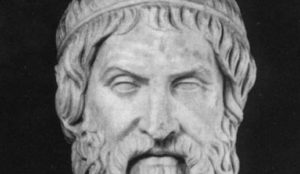
12. According to second century AD geographer Pausanias, God Dionysus visited Aeschylus in his sleep and instructed him to concentrate his energy and focus his attention on the nascent art of tragedy.
13. In 490 BC, he along with his brother Cynegeirus fought to defend Athens against Darius I at the Battle of Marathon.
14. The death of his brother Cynegeirus while trying to prevent a Persian ship retreating from the shore caused him much pain and grief.
15. Aeschylus resumed his military duties in 480 BC when he received a call to fight against Xerxes I’s invading forces at the Battle of Salamis.
16. He rendered his services to the Battle of Plataea as well in 479 BC.
17. Aeschylus took part in the dramatic competitions that were common in those days. The competition was a grand affair and was more of a festival.
18. The first ever competition that he participated in comprised of three playwrights including him, each of whom presented a tragic play which was followed by a shorter comedic satyr play.
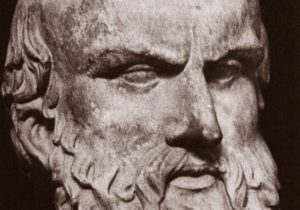
19. The first competition was followed by a second competition, wherein there were five comedic playwrights. During his life, he participated in many such competitions.
20. Except for Prometheus Bound whose authorship is disputable, all of his plays are believed to have gotten the first prize in the competition.
21. By 473 BC, after the death of Phynichus, another Greek tragedian, Aeschylus became yearly favorite in the Dionysia and went on to win every competition.
22. The Persians is his oldest surviving play, which was performed in 472 BC and won first prize at the Dionysia. It was loosely based on his own life and experience at the Battle of Salamis.
23. His next surviving play, Seven Against Thebes, was performed in 467 BC. It was themed around the interference of Gods in human affairs. The play originally depicted the story of the two sons of the King of Thebes, Oedipus and their death due to greed.
24. In 458 BC, he brought forth his trilogy play The Oresteia, which has today become the only surviving trilogy of Greek plays by and playwright.
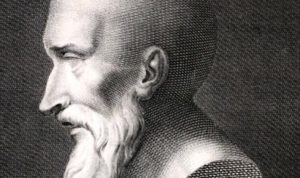
25. He married and had two sons, Euphorion and Euaeon.
26. Both of his sons became tragic poets. Euphorion outdid Sophocles and Euripidesin and won the first prize in a competition.
27. Aeschylus’ nephew was also a tragic poet, and won first prize in the competition against Sophocles’ Oedipus Rex.
28. His last visit to Sicily was in 458 BC. During this visit, he explored the city of Gela.
29. Legend has it that he died when an eagle mistook his bald head for a rock and dropped a tortoise on it.
30. After his death, a monument was erected in his memory.

